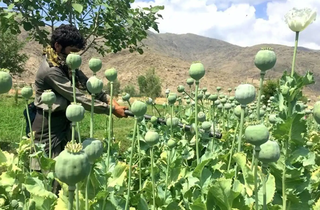The Ministry labeled these claims as "baseless," asserting that the opium problem has been effectively eradicated in the country.
Abdul Matin Qane, the spokesperson for the Ministry of Interior, issued a statement on Wednesday dismissing SIGAR's report. He emphasized that the IEA has made significant strides in combating drug production and trafficking since taking control of the country three years ago. According to Qane, the IEA has prioritized the eradication of opium and other drugs, rounding up addicts and placing them in rehabilitation facilities.
Following a decree from the IEA’s supreme leader, the Ministry of Interior has made the fight against drugs one of its central missions. "No exception will be made against cultivation, trafficking, dealing, production, possession, or use of narcotics in Afghanistan," Qane stated, highlighting the ministry's ongoing efforts to address the drug issue.
The Ministry also underscored that despite limited resources, the IEA has succeeded in eradicating the drug problem in Afghanistan. The statement affirmed that the IEA is determined not to allow Afghanistan to revert to being a hub of drug trade and trafficking, as it was in the past.
The IEA’s response comes in the wake of SIGAR's report, which suggested that while opium production has decreased, drug trafficking from Afghanistan persists. The IEA’s firm rejection of these claims reflects its broader effort to project an image of a country moving away from its troubled past and taking a stand against the narcotics trade. (ILKHA)



 Güncel
Güncel
 Dünya
Dünya
 Güncel
Güncel
 Güncel
Güncel
 Güncel
Güncel
 Dünya
Dünya
 Dünya
Dünya
 Dünya
Dünya
 Güncel
Güncel
 Güncel
Güncel





